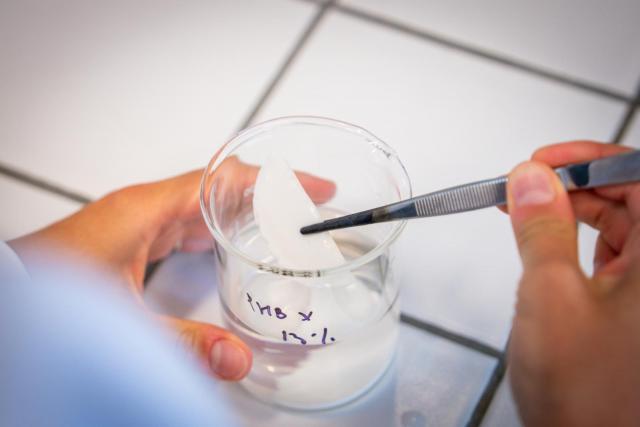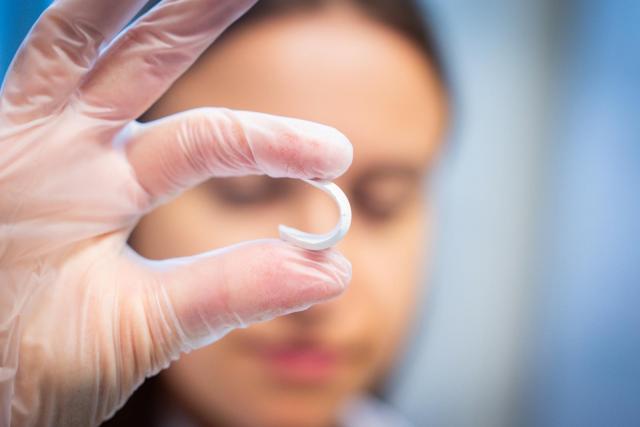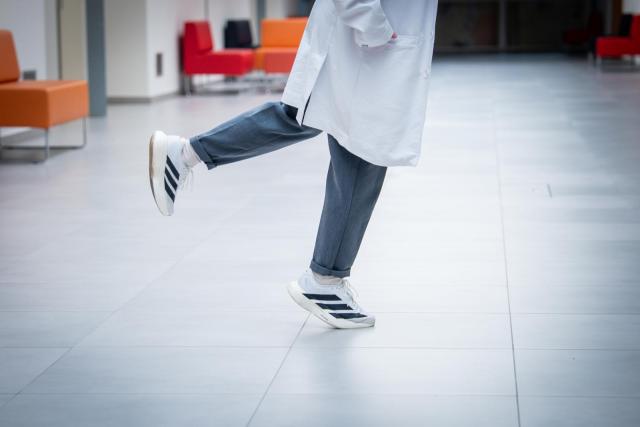“A mistake isn’t a failure, but a result that moves us forward,” says Nicole Černeková, who studies conductive hydrogels
PhD student Nicole Černeková is conducting research at FCH BUT on the use of polyhydroxyalkanoates to develop conductive hydrogels. Her work contributes to the development of materials for future applications in medicine and electronics. Although she has decided not to pursue a long-term academic career, her story shows that a scientific path doesn't have to be the destination – it can be a journey that shapes both character and worldview. She also recently shone at the prestigious Interdisciplinary Meeting of Young Scientists, where she placed among the top three in the Advanced Analytics and Material Science category.
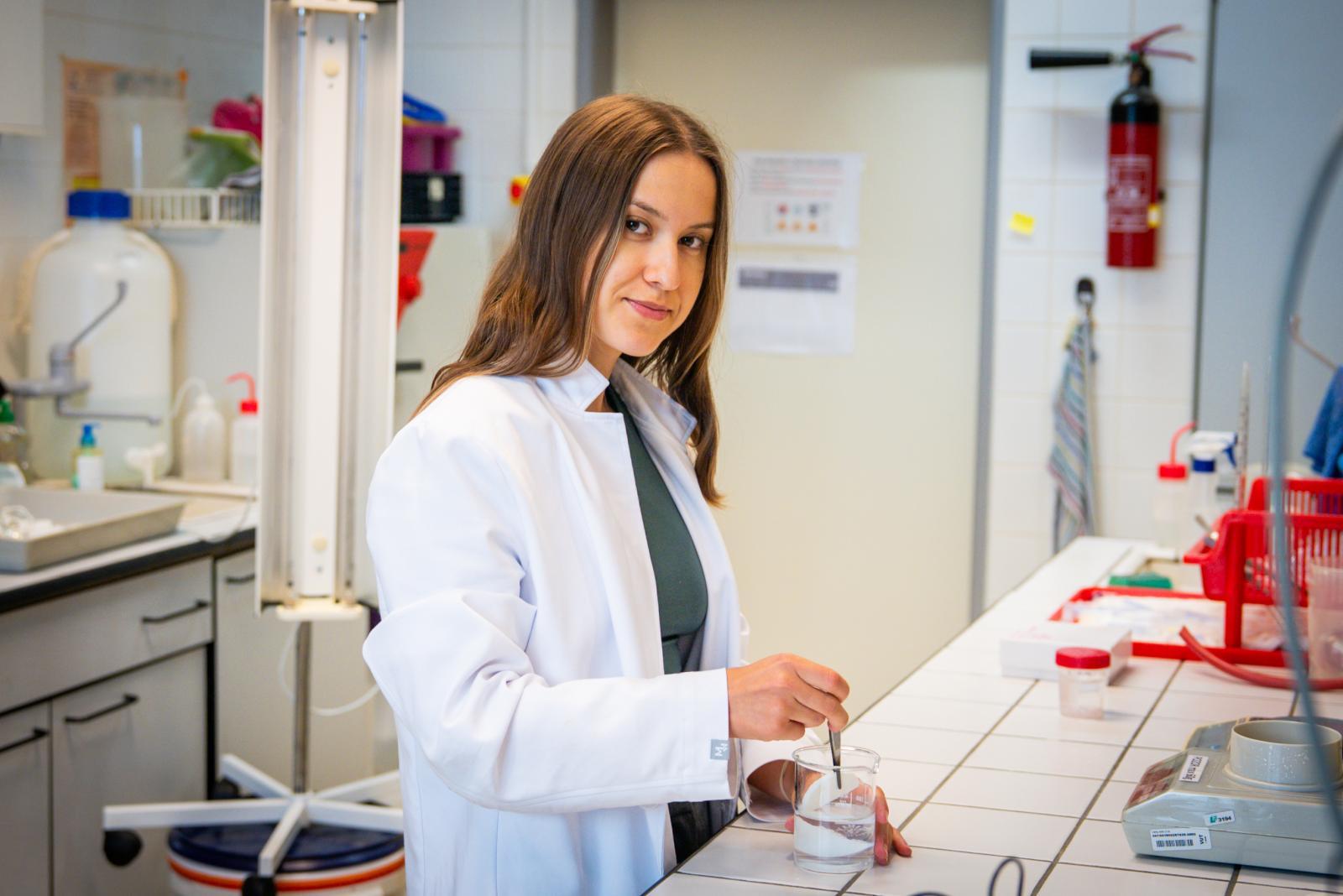
I'm in the 4th year of my PhD studies in Professor Kovalčík’s group, working at the Institute of Food Chemistry and Biotechnology. My dissertation is interdisciplinary – it combines physical chemistry and biotechnology. I focus on polyhydroxyalkanoates, which are biopolymers produced by microorganisms. They resemble conventional plastics but are biodegradable. My aim is to turn these hydrophobic materials – that “fear” water – into hydrogels, which are the opposite: hydrophilic and made up of up to 99% water. Polyhydroxyalkanoates are already being explored for use in bone replacements, but we're investigating their potential for forming hydrogels.
How did you get into this topic?
It might sound funny, but I never really liked chemistry. Still, I got straight A’s in everything at school – which might sound like bragging, but in fact it’s not very helpful, because you don’t have a clear direction. At first, I wanted to study medicine, but I didn’t enjoy rote memorization. Then I came across the “Chemistry for Medical Applications” program at FCH BUT and thought – this is a technical university, so it’ll be more about understanding than memorizing. And it really was – I started enjoying it because science is actually very creative. And I’ve always been a creative person. I might not enjoy being a doctor, but I liked the idea of being part of the treatment process.
I really wanted to go abroad, and I saw a PhD as a ticket to compete with others. But then life happened. Shortly before I started my PhD, my dad got sick, and I helped my mom take care of him. Unfortunately, he passed away. The plans to go abroad fell through, and my priorities shifted completely. I realized it’s not just about me – I have people I want to be close to. At that point, work became a means for me to live in the here and now. People go into science when they’re completely passionate about it and see nothing else – for them, work is life. For me, work didn’t lose meaning, but it’s no longer the only meaning. That’s why, after finishing my PhD, I’m heading into private industry. On the one hand, unfortunately. But on the other hand, maybe that’s exactly how it was meant to be.
Why did you decide to finish your PhD anyway?
Because I’m the kind of person who finishes what they start. And I also promised my dad I’d become a doctor. (smiles) Even though I now know I won’t stay in academia, I have no regrets. Curiosity played a big role for me. Science is about discovering what’s possible. If something works, great. If not, it still leads you somewhere new. When I was preparing for my state exams, I talked with my professor about my research idea, but we thought it might be too complicated. Then Associate Professor Sedláček came along and said – why not actually try it? So we joined forces and gradually worked our way toward making it feasible.
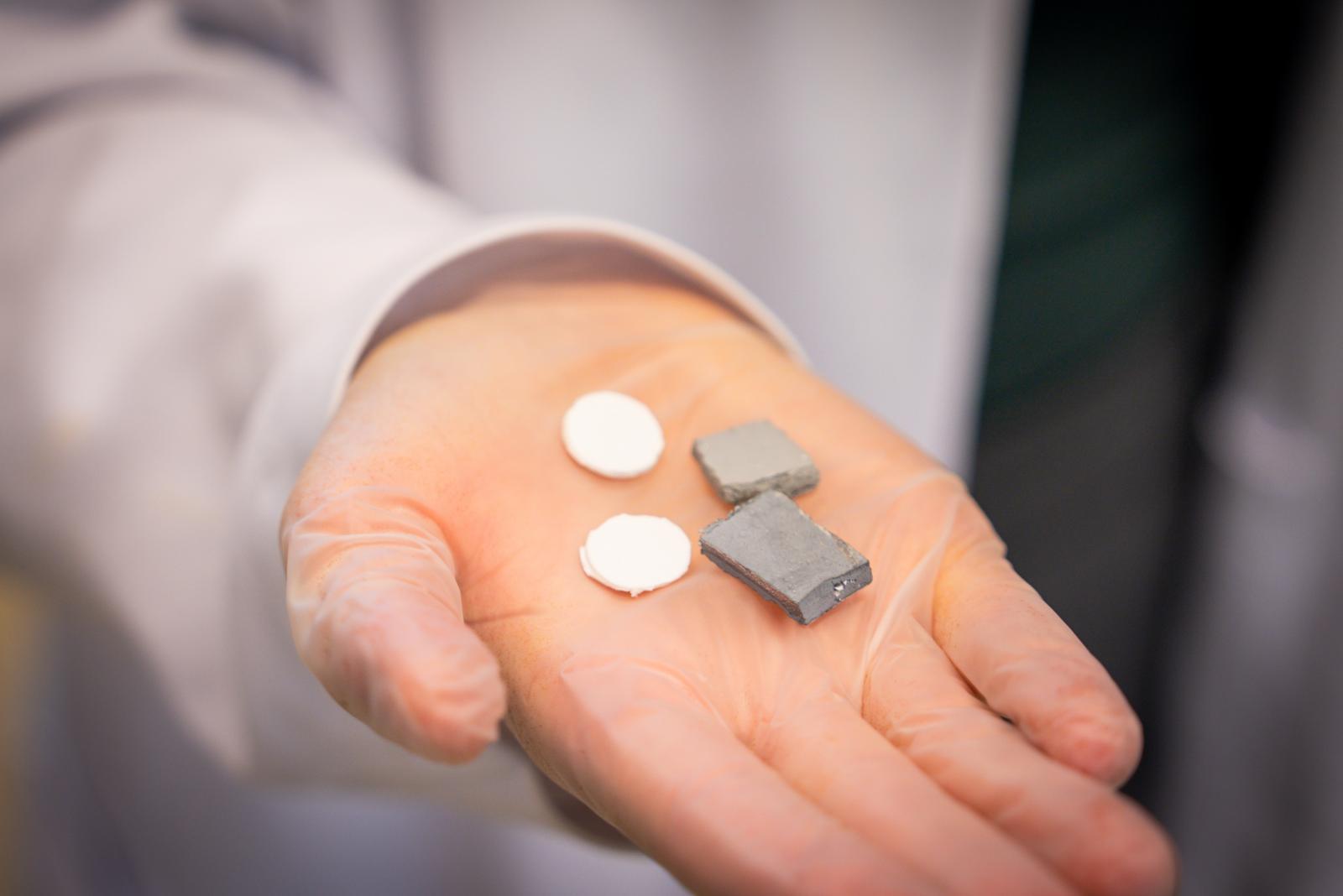
Right now, we’re trying to create hydrogels not only from hydrophobic polyhydroxyalkanoates but also conductive ones. There are already studies on conductive hydrogels, but most focus on the classic soft types – with a gummy bear–like texture. We’re working with more rigid materials that can retain water and are mechanically more robust. Such conductive hydrogels could be used as wound dressings – conductivity helps speed up healing – or in various sensors, which are very popular nowadays. Or in batteries, supercapacitors, and so on. I believe this is a good foundation for future research. But research only truly makes sense when it has real-world application – which may or may not come.
What do you enjoy most about your research?
The fact that we’re the first trying to prepare hydrogels from hydrophobic material in this way. We’ve developed a method that could theoretically be applied to other materials too. It’s a challenge, because unlike in other fields where you can find exact procedures and predictable results in publications, here we often don’t know what to expect. If we succeed, it could lead to something useful for others. I believe this material has great application potential and could become more widely used in the future.
You recently placed in the top three in the Advanced Analytics and Material Science category at the prestigious Interdisciplinary Meeting of Young Scientists. What did this achievement mean to you?
Even though I didn’t win, it meant a lot to me. It showed me that what we do makes sense. That our research isn’t just interesting, but also competitive. And that I was able to present it in a way that caught the attention of experts from various fields. The conference covered a broad range of topics – organic chemistry, diagnostics, analytical methods, cancer research… These were strong topics. Personally significant for me too – after my dad died of cancer, my mom was also diagnosed, fortunately with a positive outcome. That’s why it resonated so much with me. I was amazed to see that young researchers my age were already collaborating with hospitals and working with actual clinical samples. There were truly incredible projects. And I found myself wondering: “God, what am I even doing here?” The conference was selective – just being among those chosen was a win in itself.
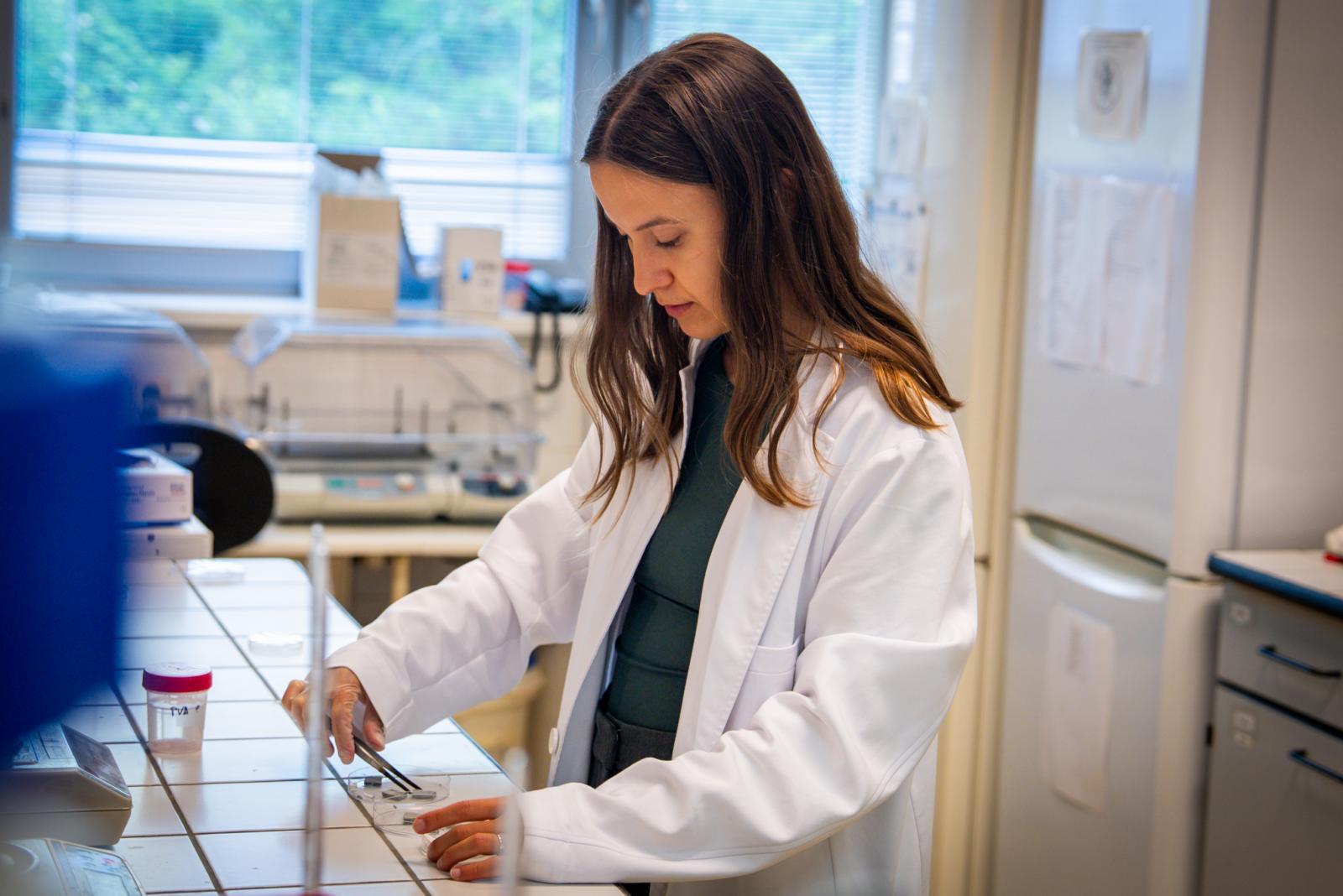
We presented that our hydrogels work and can even be 3D printed. We can use a printer to create precise shapes – for instance, a cartilage replacement tailored to a specific patient. The goal was to show the potential and maybe inspire further research. I was pleasantly surprised by the feedback – some judges complimented my presentation style, and a girl from Turkey even suggested I start a career in a yoga studio. So I’ve got a backup plan. (laughs)
What was the atmosphere of the conference like? What impressed you most?
The atmosphere was great – you could feel that people there shared a passion for science. It really helped me gauge how my peer group is doing, what people my age can already achieve. I was impressed by how many young people are already engaged in cancer research. It’s amazing that they’re interested, that someone guided them in that direction, and that they’ve found such meaning in it that it completely absorbed them.
What did the experience give you – scientifically and personally?
It gave me a bit of confidence that I can explain my research in a way people understand. That’s important – to keep reminding yourself: “You’ve got what it takes, you’re doing enough, you are enough.” What made me happiest was that people genuinely asked questions. Meaningful ones. It showed me that my explanation landed. I always try to explain things so even a complete layperson – ideally even my grandma – could understand them.
What helps you overcome challenges during your PhD?
What happened with my dad was such a huge trauma that now I feel like nothing else is truly a challenge anymore. If it’s not a matter of life and death, it’s nothing. If something happens, I don’t see it as something bad. I’m actually lucky that it’s just this and not something worse. If I have a problem, I vent at home or call my mom. And sport helps me a lot too.
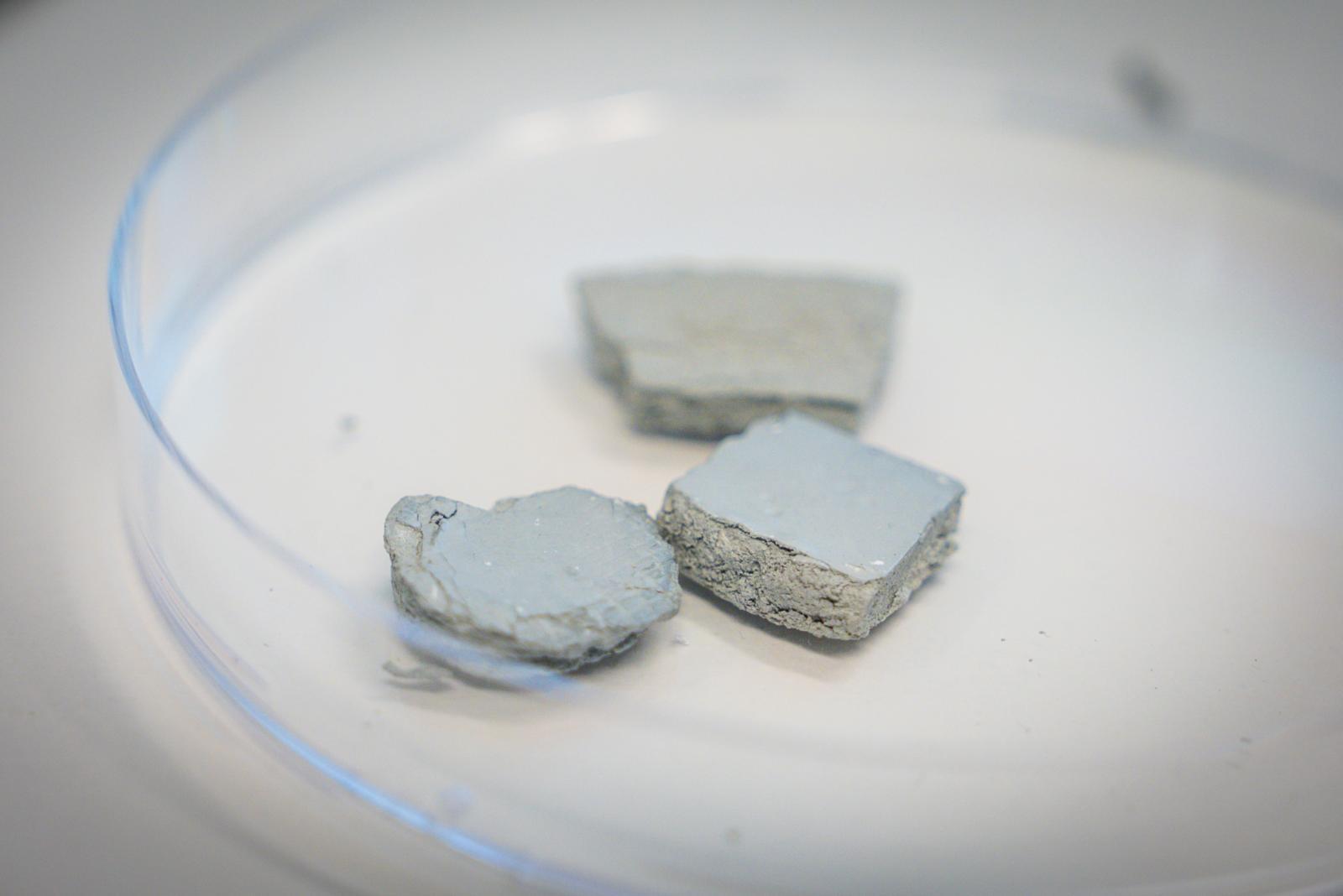
I now see my PhD more as a ticket to greater freedom. It might sound strange, but the degree simply increases your value on the job market. I don’t think it should be that way – but that’s the reality. It gives me more freedom to enjoy life outside of work. Because – work is not life, life is life. (laughs)
In September, I’ll be starting a position as a certification specialist for non-active medical devices – like bandages, plasters, and so on. Since I’ve been focusing on medical applications during my studies, it all fits together nicely. My job will involve reviewing technical documentation, issuing certificates, and going on audits to companies around the world – from Japan to Brazil. And that’s another reason I’m excited – I love to travel. When I was little, we used to go caravanning around Europe with my parents.
What advice would you give to students considering a PhD?
Find your “why.” Four years is a long time, and you need to know why you want to dedicate them to research. And even if you realize during your studies that it’s not for you – that’s okay. What matters is at least knowing what you don’t want.
How important do you think support and environment at the faculty are?
Very important. I really like our team – when something goes wrong, I know that great people are waiting for me in the office. It’s nice to be surrounded by colleagues you can talk to about things other than research. Like my upcoming wedding, for instance. (laughs)
Is there anyone at FCH who inspires or supports you professionally?
Definitely Professor Kovalčík, my supervisor – she knows how to bring out the best in me. And my consultant, Dr. Smilek, is a great support as well. I’m amazed by how much energy he has and how willingly he helps. I’ve told myself that if I stayed at the faculty, I’d want to be like him. He’s a fantastic teacher, gives constructive feedback, but also knows how to appreciate when something is done well. His approach to mistakes really resonates with me. In our school system, we tend to focus on errors, but I see mistakes as a path to growth – just like in sport. The biggest lessons are hidden in the mistakes.
I know you’re very active – you placed among the top participants in the Bike to Work campaign. What do you enjoy about sport?
I enjoy pushing my limits. I used to want to find my breaking point, but I’ve realized that if you know how to work with your mind, you might never hit it. The body is only as strong as the mind – and that applies to both research and sport.
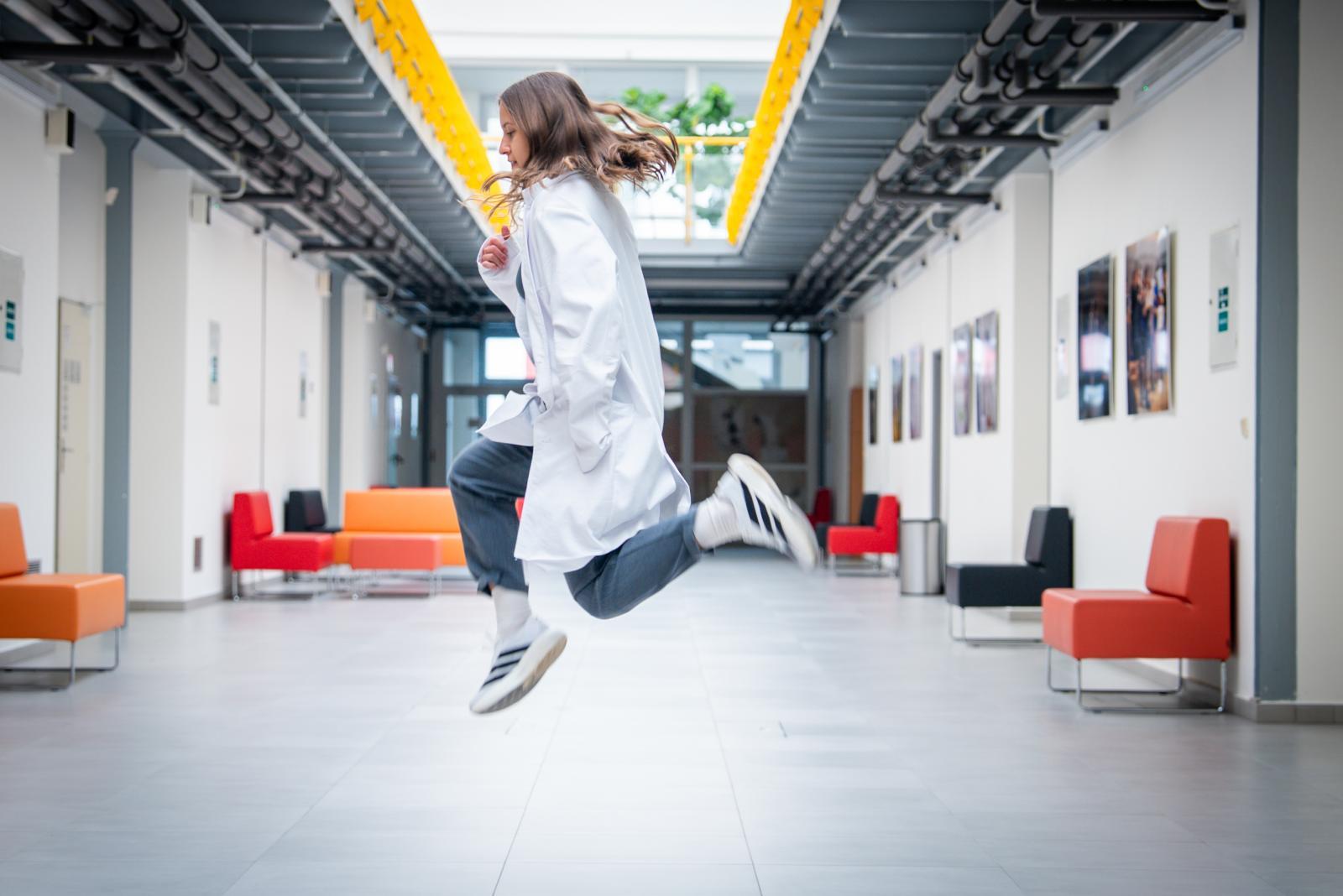
I’ve always been into sports. I used to dance disco dance for a long time. Then I stopped because of university, but I would have gotten bored without movement, so I looked for something else – and found running, cycling, and triathlon. I really leaned into sports when my dad got sick – it was truly my antidepressant. I knew that if I went for a run, I’d feel better.
Do you have a sporting goal or challenge you’d like to complete?
I recently fulfilled a challenge by trying HYROX – a race that combines seven workouts and running in between. We signed up two weeks beforehand with no training, and I finished fourth, which surprised me, because the girls ahead of me came from CrossFit gyms. I did it with my fiancé – he was just glad he survived. (laughs) My big goal now is Ironman in August. Overall, my goal in sports is to be able to do it for as long as possible. To stay healthy – and alive – and with my people. To keep enjoying it. To be in good enough shape to avoid injuries. Whether or not that includes future races doesn’t really matter.
What message would you give to your younger self at the start of your studies?
All bad things will pass. Things won’t be like they were before, but they can still be good – or even better. Don’t be afraid to stick with it if you love it, and don’t be afraid to quit if you don’t. But above all – don’t be afraid. It’s going to be okay. Don’t be afraid to be confident, be loud – because the more people know about you, the better it is for you.
And what would you like people to remember about you and your work?
I want people to remember that even when something looks impossible on paper, it might still be possible. Sometimes the solution isn’t all that difficult – it might be a tiny detail that makes it work. It’s worth trying and making mistakes. Mistakes aren’t shameful – they’re results that move us forward. They should even be included in research articles so others know what’s not worth trying.
Thank you for the interview, and we wish you continued success!
-jo-
| Published | |
|---|---|
| Link | https://www.fch.vut.cz/en//f96620/d296571 |
